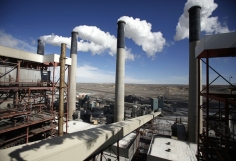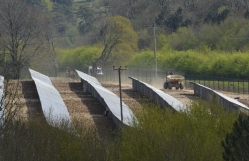
Here's another shocking discovery about global climate change: It contributes to the falling of sea levels, and not to the rising of the seas as previously thought.
Using two satellites, the National Aeronautics and Space Administration (NASA)'s Jet Propulsion Laboratory (JPL) in cooperation with the University of California at Irvine recently found out that water with a measured volume of 3.2 trillion tons has already seeped through land over the past decade.
This figure amounts to the rate of sea level rise slowing by 22 percent, according to the new research. This means that previous fears that certain islands will be inundated in coming years can already be allayed.
The study's lead author, J.T. Reager of the JPL, explained that because of growing demand for water due to global warming, the surface of the Earth has become more parched, with less groundwater underneath.
As a result, water from melting glaciers earlier believed to be causing sea level rise is said to "being absorbed" by lakes, rivers and underground aquifers, similar to the way a sponge absorbs water.
"We always assumed that people's increased reliance on groundwater for irrigation and consumption was resulting in a net transfer of water from the land to the ocean," Reager, who started this research as a UC Irvine graduate student, said in a statement on NASA's website.
"What we didn't realise until now is that over the past decade, changes in the global water cycle more than offset the losses that occurred from groundwater pumping, causing the land to act like a sponge – at least temporarily," the lead researcher added.
He further explained that these new findings from this study, which is set to be published on Friday in the journal Science, give scientists an idea of the connection among climate change, sea levels and water shortage.
Prior to this, scientists only had a vague idea on how climate change can affect the hydrologic or water cycle.
"These new data are vital for understanding decadal variations in sea level change. The information will be a critical complement to future long-term projections of sea level rise, which depend on melting ice and warming oceans," Reager said.
Marc Morano, a famous global warming sceptic, said these findings prove his belief all along that climate change cannot be directly connected to supposed sea level rises.
"There is no evidence of an acceleration of sea level rise, and therefore no evidence of any man-made effect on sea levels. Sea level rise is primarily a local phenomenon related to land subsidence, not carbon dioxide levels," Morano said in a separate article on WND.com.















